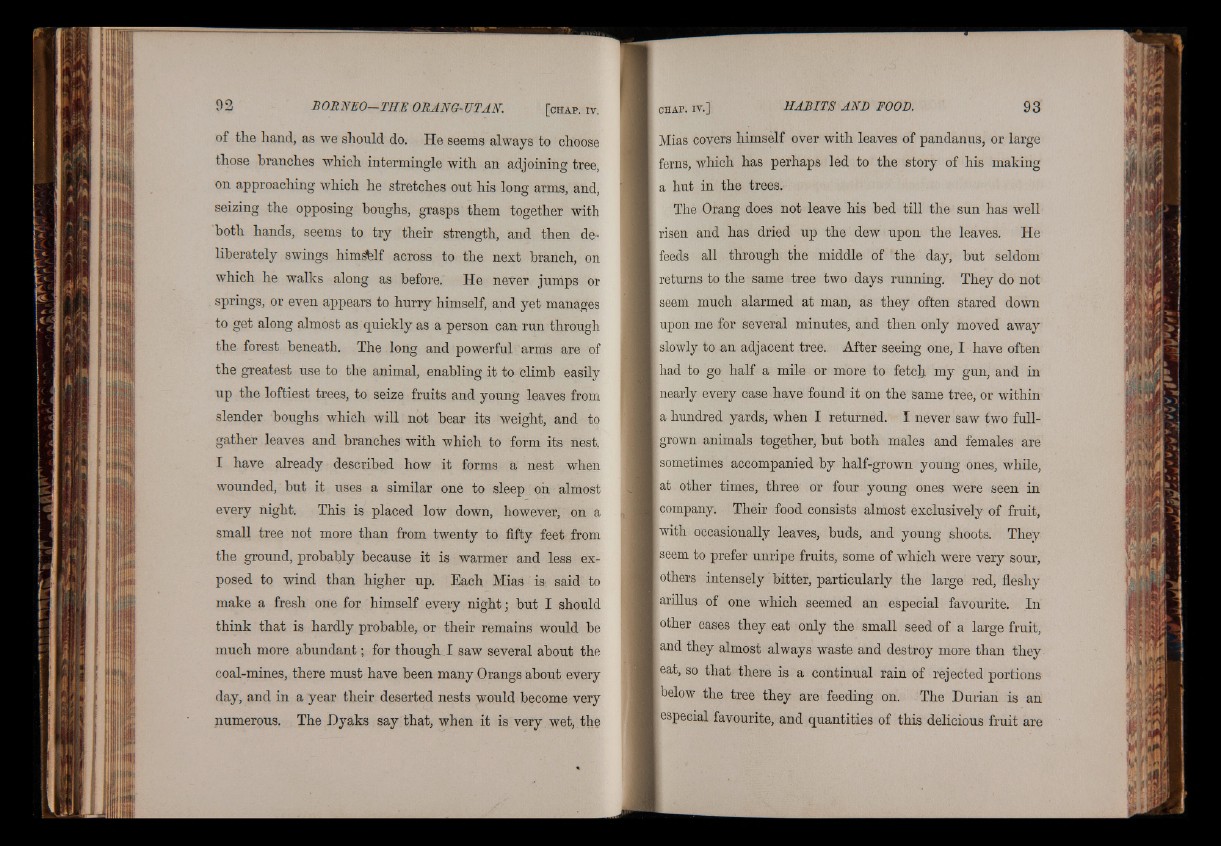
of the hand, as we should do. He seems always to choose
those branches which intermingle with an adjoining tree,
on approaching which he stretches ont his long arms, and,
seizing the opposing honghs, grasps them together with
both hands, seems to try their strength, and then deliberately
swings himsfelf across to the next branch, on
which he walks along as before. He never jnmps or
springs, or even appears to hnrry himself, and yet manages
to get along almost as quickly as a person can run through
the forest beneath. The long and powerful arms are of
the greatest use to the animal, enabling it to climb easily
up the loftiest trees, to seize fruits and young leaves from
slender houghs which will not hear its weight, and to
gather leaves and branches with which to form its nest.
I have already described how it forms a nest when
wounded, hut it uses a similar one to sleep oh almost
every night. This is placed low down, however, on a
small tree not more than from twenty to fifty feet from
the ground, probably because it is warmer and less exposed
to wind than higher up. Each Mias is said to
make a fresh one for himself eveiy night; hut I should
think that is hardly probable, or their remains would he
much more abundant; for though I saw several about the
coal-mines, there must have been many Orangs about every
day, and in a year their deserted nests would become very
numerous. The Dyaks say that, when it is very wet, the
Mias covers himself over with leaves of pandanus, or large
ferns, which has perhaps led to the story of his making
a hut in the trees.
The Orang does not leave his bed till the sun has well
risen and has dried up the dew upon the leaves. He
feeds all through the middle of the day, hut seldom
returns to the same tree two days running. They do not
seem much alarmed at man, as they often stared down
upon me for several minutes, and then only moved away
slowly to an adjacent tree. After seeing one, I have often
had to go half a mile or more to fetch my gun, and in
nearly every case have found it on the same tree, or within
a hundred yards, when I returned. I never saw two full-
| grown animals together, hut both males and females are
sometimes accompanied by half-grown young ones, while,
at other times, three or four young ones were seen in
j company. Their food consists almost exclusively of fruit,
twith occasionally leaves, buds, and young shoots. They
I seem to prefer unripe fruits, some of which were very sour,
{others intensely hitter, particularly the large red, fleshy
arillus of one which seemed an especial favourite. In
other cases they eat only the small seed of a large fruit,
and they almost always waste and destroy more than they
eat, so that there is a continual rain of rejected portions
below the tree they are feeding on. The Durian is an
especial favourite, and quantities of this delicious fruit are